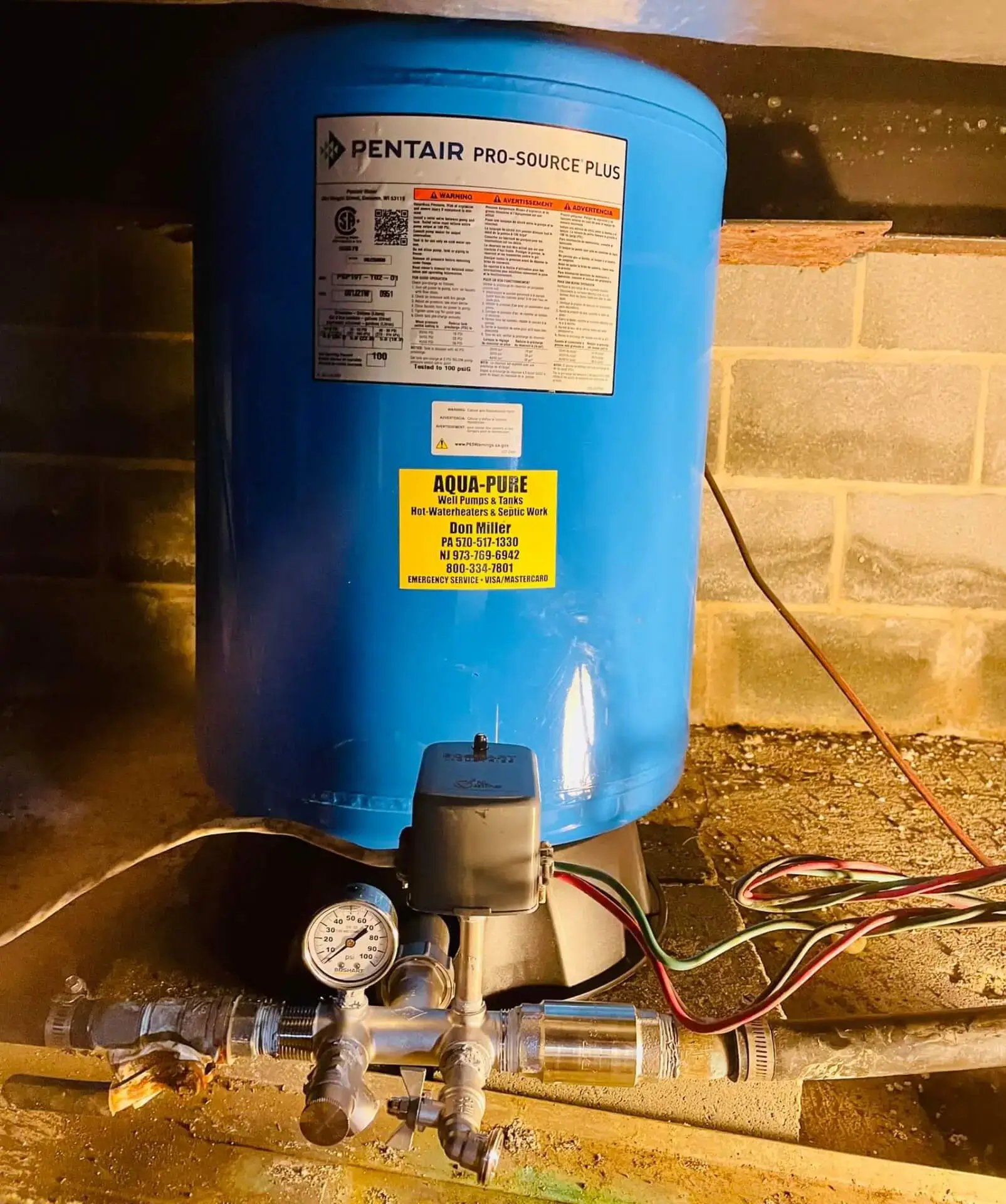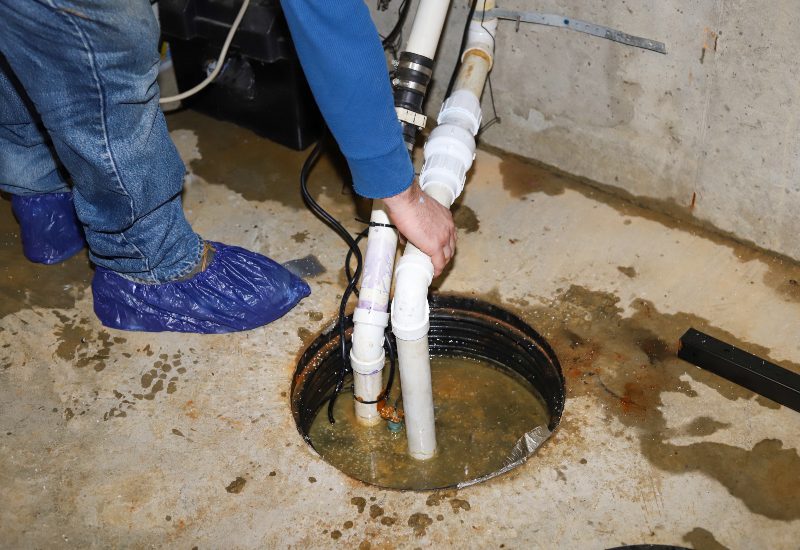Aggressive Water Treatment Steps: Buying Long-Term Water Top Quality
Comprehending the Trick Components of Effective Water Purification Systems

Relevance of Water Purification Solution
Water purification systems play a critical duty in ensuring access to safe and tidy drinking water by effectively removing pollutants and contaminants. These systems are essential in resolving the expanding worries over water quality and the prospective wellness risks connected with eating polluted water. By using numerous purification devices such as reverse osmosis, activated carbon, and UV sterilization, water filtering systems can effectively remove unsafe substances like germs, infections, heavy steels, and chemicals from the supply of water.
Furthermore, water filtration systems assist to enhance the preference and odor of water by removing chlorine, sediments, and other pollutants that can influence its top quality. Pump repairs & installation. This enhancement in water top quality not only makes it more palatable however additionally encourages individuals to consume alcohol an adequate amount of water daily, promoting much better hydration and general health and wellness
Kinds Of Filtering Parts

Physical filters are developed to literally stress out impurities from the water. These filters can be made from materials like ceramic, carbon, or even sand, and they function by trapping fragments larger than the filter's pores as water travels through.
Chemical filters utilize various chemical processes to get rid of contaminants from the water. Examples consist of activated carbon filters, which adsorb contaminations, and reverse osmosis membranes, which make use of pressure to different impurities from the water.
Biological filters utilize living microorganisms like bacteria or algae to break down raw material and toxins in the water. These filters are commonly made use of in wastewater therapy plants or all-natural water purification systems.
Understanding the various types of filtration parts is crucial for picking one of the most suitable water filtering system for specific filtration needs.
Feature of Sediment Filters
Debris filters play a crucial function in water filtering systems by effectively capturing solid particles suspended in the water. These filters are commonly the very first line of defense in a filtering system, removing larger particles such as sand, silt, dust, and corrosion before the water relocates through finer filtration stages. By capturing these sediments, the filters stop them from reaching downstream components, therefore expanding the life expectancy and performance of the entire system.
The feature of debris filters is crucial in keeping water high quality and safeguarding delicate tools from damages triggered by particles. Furthermore, by getting rid of noticeable fragments, sediment filters enhance the clarity and preference of the water. Frequently replacing or cleaning sediment filters is crucial to make certain optimum performance. Disregarding this maintenance can bring about obstructing, reduced water flow, and jeopardized purification efficiency. In general, debris filters are vital components that contribute dramatically to the efficiency of water filtration systems.
Function of Triggered Carbon Filters
Playing an essential function in water filtration systems, activated carbon filters contribute in removing pollutants and contaminants from the supply of water. These filters are designed to adsorb and trap a wide array of contaminants, including chlorine, volatile organic compounds (VOCs), pesticides, and herbicides. The triggered carbon material has a big surface, permitting the reliable trapping of contaminants with a process called adsorption. As water goes through the filter, the turned on carbon holds and draws in onto the pollutants, guaranteeing that the water that appears on the various other side is cleaner and much safer for consumption.
Activated carbon filters are very efficient at improving the taste and odor of water by lowering chemicals that can influence its high quality. Due to their versatility and dependability, turned on carbon filters are a crucial element in get more ensuring that water is detoxified to the highest possible requirements before getting to consumers.
Comprehending Reverse Osmosis Solutions
Reverse osmosis systems are innovative water filtering systems that employ a sophisticated procedure to remove pollutants and impurities from alcohol consumption water. These systems function by using pressure to the water, compeling it through a semi-permeable membrane. This membrane acts as a barrier, allowing only pure water molecules to go through, while blocking larger molecules such as minerals, chemicals, and other impurities. Consequently, the water that comes out beyond is significantly cleaner and much safer for usage.
One secret advantage of reverse osmosis systems is their capacity to eliminate a wide variety of pollutants, consisting of heavy metals, dissolved microorganisms, viruses, and solids. This makes them extremely reliable in improving the total quality and safety of alcohol consumption water. In addition, reverse osmosis systems are reasonably low-maintenance and can be set up under the sink or in a central filtering system, supplying hassle-free accessibility to clean water throughout the family. Generally, comprehending just how reverse osmosis systems function can help people make informed choices regarding their water purification needs.
Verdict
In conclusion, effective water purification systems are critical for making certain clean and risk-free alcohol consumption water. By recognizing the function and function of each element, individuals can make informed decisions when selecting a water purification system.
Water purification systems play an essential function in guaranteeing access to risk-free and tidy drinking water by Recommended Reading effectively removing impurities and pollutants. By utilizing numerous filtering devices such as reverse osmosis, activated carbon, and UV sterilization, water filtration systems can effectively get rid of damaging compounds like microorganisms, viruses, hefty metals, and chemicals from the water supply.
Debris filters play a crucial duty in water purification systems by efficiently capturing strong particles put on hold in the water (Pump repairs & installation).Playing an important role in water filtering systems, activated carbon filters are critical in eliminating impurities and contaminants from the water supply.Reverse osmosis systems are advanced water purification systems that use a sophisticated process to get rid of pollutants and impurities from link drinking water